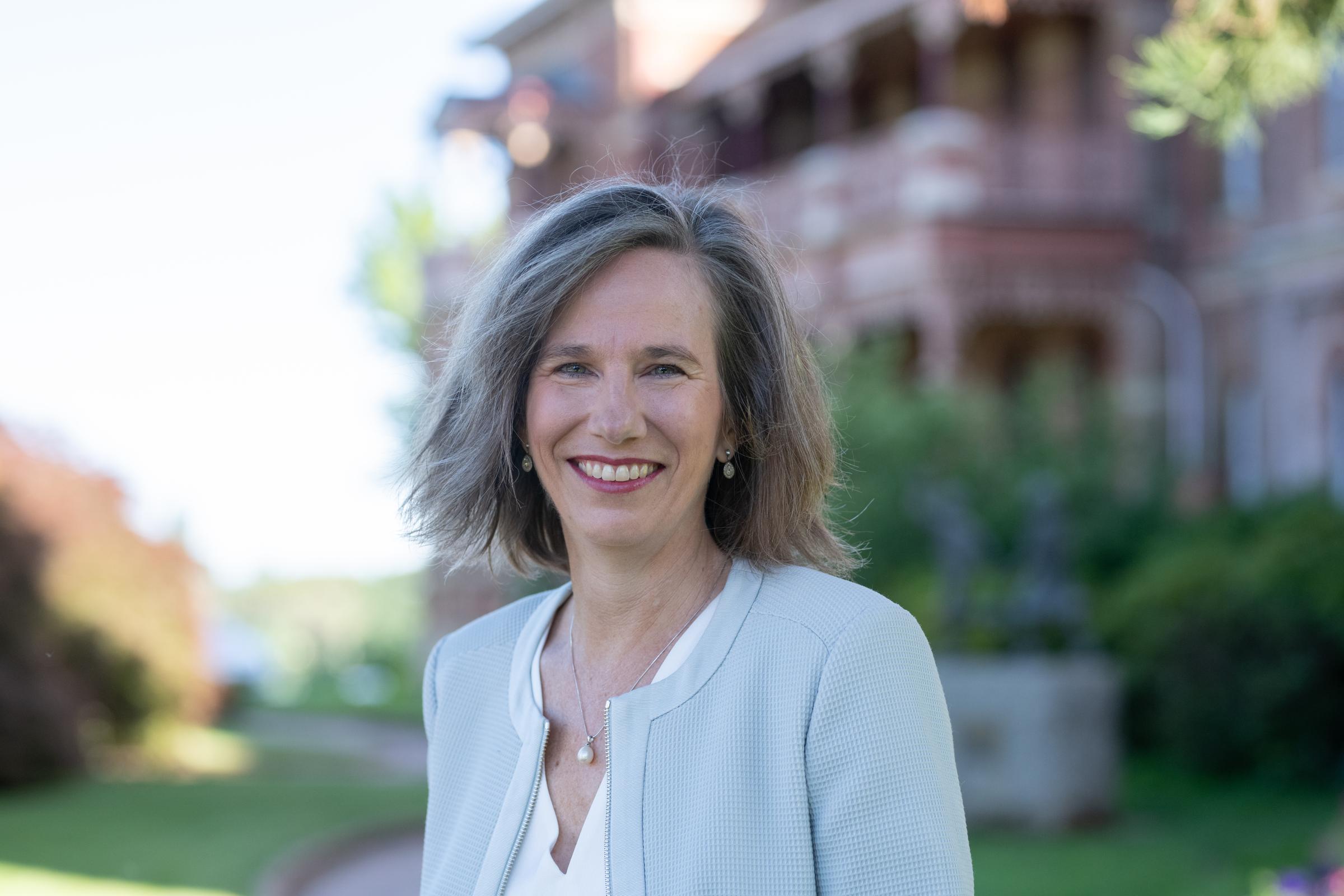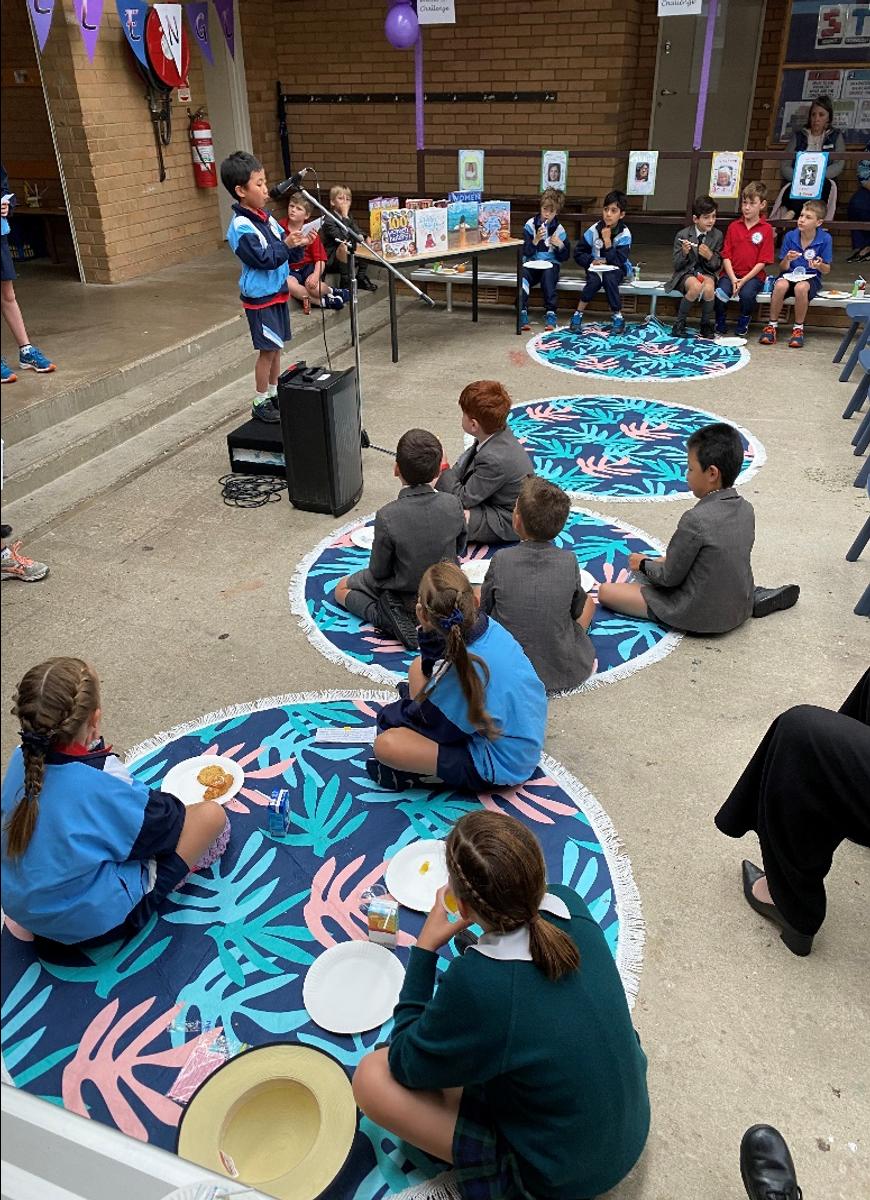Message from the
Head of the Junior School
Mrs Denise Hayward

Message from the
Head of the Junior School
Mrs Denise Hayward
“Don’t prepare kids for something. Prepare them for anything!”
(Sheninger, 2019)
A key aim of education is to prepare students for the future. This is challenging when we cannot possibly know what the future will be like in a complex and rapidly changing world. The current post-industrial ‘knowledge age’ is one where globalisation, changes in technology and cultural change make it difficult to determine what knowledge and skills are necessary for success in the future. The only ‘certainty’ seems to be ‘uncertainty’. What we do know, however, is that students in the knowledge age need to develop skills which will enable them to create, locate, interpret, share and use knowledge effectively.
A useful way to categorise the types of knowledge and skills needed for the 21st century is:
Kereluik, Mishra, Fahnoe, & Terry (2013)
In contemporary learning environments, we must move beyond the traditional notions of knowledge as the ability to retain facts. Although it is important for our students to gain disciplinary or subject knowledge, they also need to acquire skills to help them manage in a future that is sure to be full of disruptive change, high levels of connectivity and unlimited technological possibilities. It is essential for students of today to know how to learn.
At Kinross Wolaroi School we value the importance of fundamental literacy and numeracy skills as these provide students with the skills they need to inquire. However, basic skills are not enough. We need to include additional interrelated skills known as approaches to learning (ATL). These cognitive and metacognitive skills and dispositions can be transferred across a range of contexts and help students learn and succeed within and beyond the school environment. The ATL provide a guideline for empowering learners and set the scene for lifelong learning.
Every day we have the need to communicate thoughts and ideas to other people through oral language. Speaking is a part of almost every classroom, but it can be easy to assume students already know how to do things like challenge an idea or back up an argument with evidence. In reality, those oral communication skills must be explicitly taught like other core skills in school. Students learn an array of skills to help them become more effective speakers: how to speak in complete sentences, make eye contact, and build on each other's ideas. A well-spoken, confident young person will have occasion to use those communication skills throughout his or her life.
Across the School there are many opportunities for students to engage in learning experiences to develop their skills in the area of public speaking. These skills are put into practice in both formal and informal occasions. From the earliest grades our teachers support students to find their voice, express differing opinions politely, and challenging one another's thinking. Public speaking develops a range of approaches to learning (ATL) including:
In Year 6 students have been writing and speaking about a wide range of topics each week during their ‘Talk abouts’. The topics are open ended and allow students the autonomy to personalise their writing to their specific interest. The tasks also provide students with an opportunity to refine their public speaking ability and develop confidence when talking to a large group. Throughout the term the students have drastically improved their facial and vocal expression, voice projection, eye contact and stance.


In recent weeks Year 3 students have been inquiring into women who have ‘Chosen to Challenge’, the theme of this year’s International Women’s Day. The theme is one that states “a challenged world is an alert world. Individually, we're all responsible for our own thoughts and actions - all day, every day. We can all choose to challenge and call out gender bias and inequality. We can all choose to seek out and celebrate women's achievements. Collectively, we can all help create an inclusive world. (www.internationalwomensday.com)
Through their inquiries the students have found out International Women's Day is a global day celebrating the social, economic, cultural and political achievements of women. This day is not country, group, nor organization specific. No one government, NGO, charity, corporation, academic institution, women's network, or media hub is solely responsible for International Women's Day. The day belongs to all groups collectively everywhere.
The students developed their research skills as they gathered information about a significant individual and wrote about why this person embodied this year’s theme. This work became one of several elements that ultimately were celebrated at a breakfast where students spoke to their peers, members of the Junior School Staff, the Senior Management Team and Senior School student leaders. Thank you to our Year 3 Teachers, Mrs Whiteley and Mr Whitehead for the guidance they have provided their students over the last few weeks.
Some of our students in recent weeks have looked to take their public skills beyond the classroom. These students have been working on developing their debating skills with Mrs Charlton at lunch time. Over the coming year students will participate in inter school debating competitions.
In addition to these planned experiences to develop and use public speaking skills within the School setting students last week had the opportunity to be heard by a much wider audience as Prime 7 News presented a feature on "Area 51". I was so proud of our students who spoke so clearly, articulating what “Area 51” is, why they have chosen to be involved and the impact it has on their learning beyond the classroom. Thank you to Ms Dodson for her ongoing work in this area.